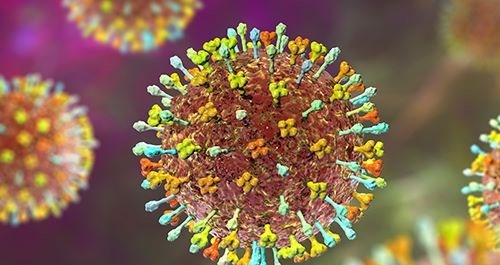Can eating more processed red meat increase your dementia risk?
- Past studies show that eating processed meats can increase a person’s risk for several health issues, including dementia and cognitive decline.
- A new study reports that people who eat processed red meat have a greater risk of developing cognitive decline and dementia than those who eat very little red meat.
- Researchers found that replacing one daily serving of processed meat with a serving of nuts, legumes, fish, or chicken helped lower dementia risk.
Past studies show that eating processed meats — such as hot dogs, sausages, salami, and bacon — can increase a person’s risk for several health issues, including type 2 diabetes, heart disease,
Previous research has also shown a potential correlation between consuming processed meats and a heightened risk for neurological conditions such as dementia and cognitive decline.
Now, scientists at Brigham and Women’s Hospital in Boston add to this body of research with a new study that found people who eat more processed red meat have a greater risk of developing cognitive decline and dementia than those who eat very little red meat.
“It is important for researchers to continue exploring how what we eat impacts brain health because diet is a modifiable risk factor that offers significant potential for dementia prevention and cognitive health improvement,” Yuhan Li, MS, research assistant at Channing Division of Network Medicine in the Department of Medicine at Brigham and Women’s Hospital and the first author of this study told Medical News Today.
“With the growing global burden of dementia and the lack of a cure, understanding the relationship between diet and brain health can help develop evidence-based dietary guidelines,” he said.
Researchers also found that replacing one daily serving of processed meat with a serving of nuts, legumes, fish, or chicken helped lower the risk of dementia. The study was recently published in Neurology, the medical journal of the American Academy of Neurology.
High processed meat consumption increases dementia risk by 13%
For this study, researchers recruited more than 133,000 participants, with an average of 49 who had not been diagnosed with dementia at the start of the study. Study participants were followed for up to 43 years, and every two to four years, they were asked to complete a food diary.
Participants were split into three groups based on their processed meat consumption:
- Low group that ate an average of fewer than 0.10 servings per day
- Medium group that ate between 0.10 to 0.24 servings per day
- High group that ate 0.25 or more servings per day
Upon analysis, researchers found that study participants in the high-processed meat consumption group had a 13% higher risk of developing dementia compared to those in the low group.
“This finding highlights the significant impact of dietary habits on brain health and suggests that processed red meat consumption is a modifiable risk factor for dementia. It supports broader public health efforts to promote healthier dietary patterns for cognitive health and disease prevention, and contributes to the development of dietary guidelines,” Li said.
When it came to unprocessed red meat—such as beef, lamb, and pork—researchers did not find a difference in dementia risk between those who ate an average of less than half a serving per day and those who ate one or more servings each day.
Processed meat increases subjective cognitive decline risk
Li and his team also looked at how eating processed meat might affect a person’s subjective cognitive function, which is how well a person perceives their cognitive capabilities to be.
Researchers found that participants who ate an average of 0.25 servings or more each day of processed red meat had a 14% increased risk of subjective cognitive decline.
“Similar to the dementia findings, this result of subjective cognitive decline also supports broader public health efforts to promote healthier dietary patterns for cognitive health and disease prevention, and contributes to the development of dietary guidelines,” Li explained.
Additionally, since subjective cognitive decline often serves as an early indicator of potential future cognitive impairment or dementia, addressing dietary factors related to subjective cognitive decline offers an opportunity to delay the progression to more severe cognitive conditions,” he added.
Swapping processed meat with nuts, fish lowers dementia risk
Researchers also looked at what might happen to participants’ dementia risk if one daily serving of processed red meat was swapped out with a serving of nuts, legumes, fish, or chicken.
Scientists found exchanging processed meat with nuts and legumes was linked to a 19% lower dementia risk, fish with a 28% lower risk, and chicken with a 16% lower risk.
“The findings for the substitution effect demonstrates the potential of dietary modifications to reduce dementia risk. This evidence can also guide dietary recommendations,” Li said.
MNT spoke with Jasmin Dao, MD, PhD, pediatric and adult neurologist at Miller Children’s & Women’s Hospital Long Beach and MemorialCare Long Beach Medical Center, both in California, about this study.
“What we eat affects our brain’s cognitive processing — motor control, language, problem-solving — and memory,” Dao said. “Making good diet choices is an actionable way to improve our brain health and provide neuroprotection to the aging brain.”
“Further research needs to be done to understand the diet and dementia connection. The mechanism of how certain foods interfere with brain health is still unclear. Various theories of the association between red meat consumption and dementia exist, such as damage to vascular health or brain cell injury, but no research has yet to find the direct link between food and cognition,” she continued.
MNT also spoke with Monique Richard, MS, RDN, LDN, a registered dietitian nutritionist and owner of Nutrition-In-Sight, for tips on how readers can eat less processed red meat to help keep their brains healthy.
Richard said making dietary changes starts with being honest, open-minded, and creative in the kitchen.
“I encourage clients and patients to be honest with the amount, frequency and sources of protein intake in their dietary pattern. Consuming multiple fast food bacon-double-cheese burgers in a week? Are sausage links or bologna sandwiches a daily staple? Hot dogs and cold cuts regularly on the grocery list? Are the portions sizes 4-6 ounces in one serving or 8-10 ounces?” she explained.
“We discuss the importance of being open-minded in exploring alternatives to animal products as well as the importance of understanding more about the quality of meat — or any protein and food source for that matter,” Richard continued.
Source
Can eating more processed red meat increase your dementia risk? -Medicalnews Dementia: Processed red meat may raise cognitive decline risk by 13%
Bài viết liên quan






